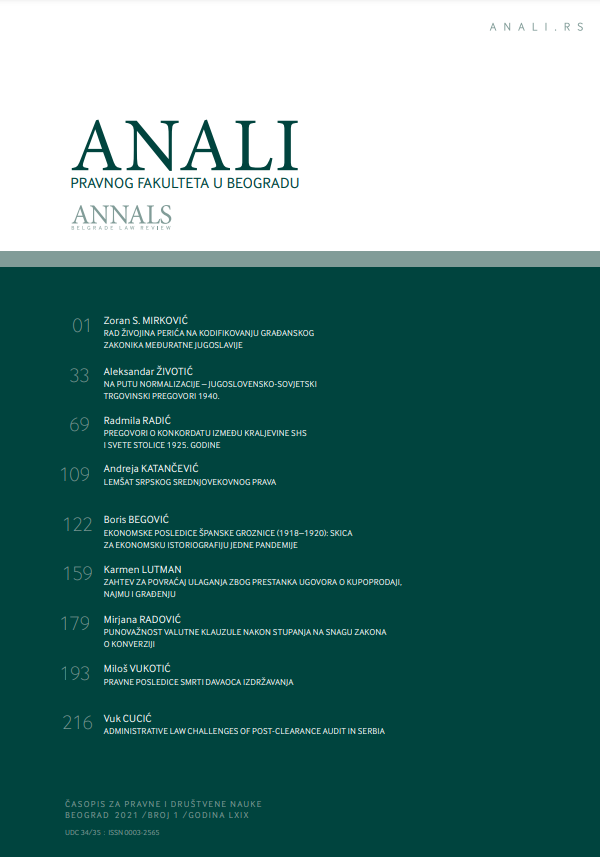ЕКОНОМСКЕ ПОСЛЕДИЦЕ ШПАНСКЕ ГРОЗНИЦЕ (1918‒1920): СКИЦА ЗА ЕКОНОМСКУ ИСТОРИОГРАФИЈУ ЈЕДНЕ ПАНДЕМИЈЕ
ECONOMIC OUTCOMES OF THE SPANISH FLU (1918–1920): A SKETCH OF THE ECONOMIC HISTORIOGRAPHY OF A PANDEMIC
Author(s): Boris BegovićSubject(s): History, Social Sciences, Economy
Published by: Правни факултет Универзитета у Београду
Keywords: Pandemic; Spanish flu; COVID-19; Economic growth; Human capital
Summary/Abstract: The aim of the paper is to explore the economic outcomes of the Spanish flu pandemic and to systemise the insights in such a way that they can be used for shedding light on the economic outcomes of COVID-19 pandemic. It was demonstrated that in the short run the impact of the Spanish flu was a significant one-off drop of the output due to the significant decrease in labour supply augmented by the decrease in aggregate demand. In the long run the Spanish flu decreased the level of available human capital in two ways: directly due to the excess mortality, and indirectly due to the intergenerational transfer of lower human capital and the health of mothers during pregnancy. The decrease in human capital generated adverse consequences on economic growth and these consequences increase with technological progress, which demands a higher level of human capital.
Journal: Анали Правног факултета у Београду
- Issue Year: 69/2021
- Issue No: 1
- Page Range: 122-158
- Page Count: 37
- Language: Serbian

